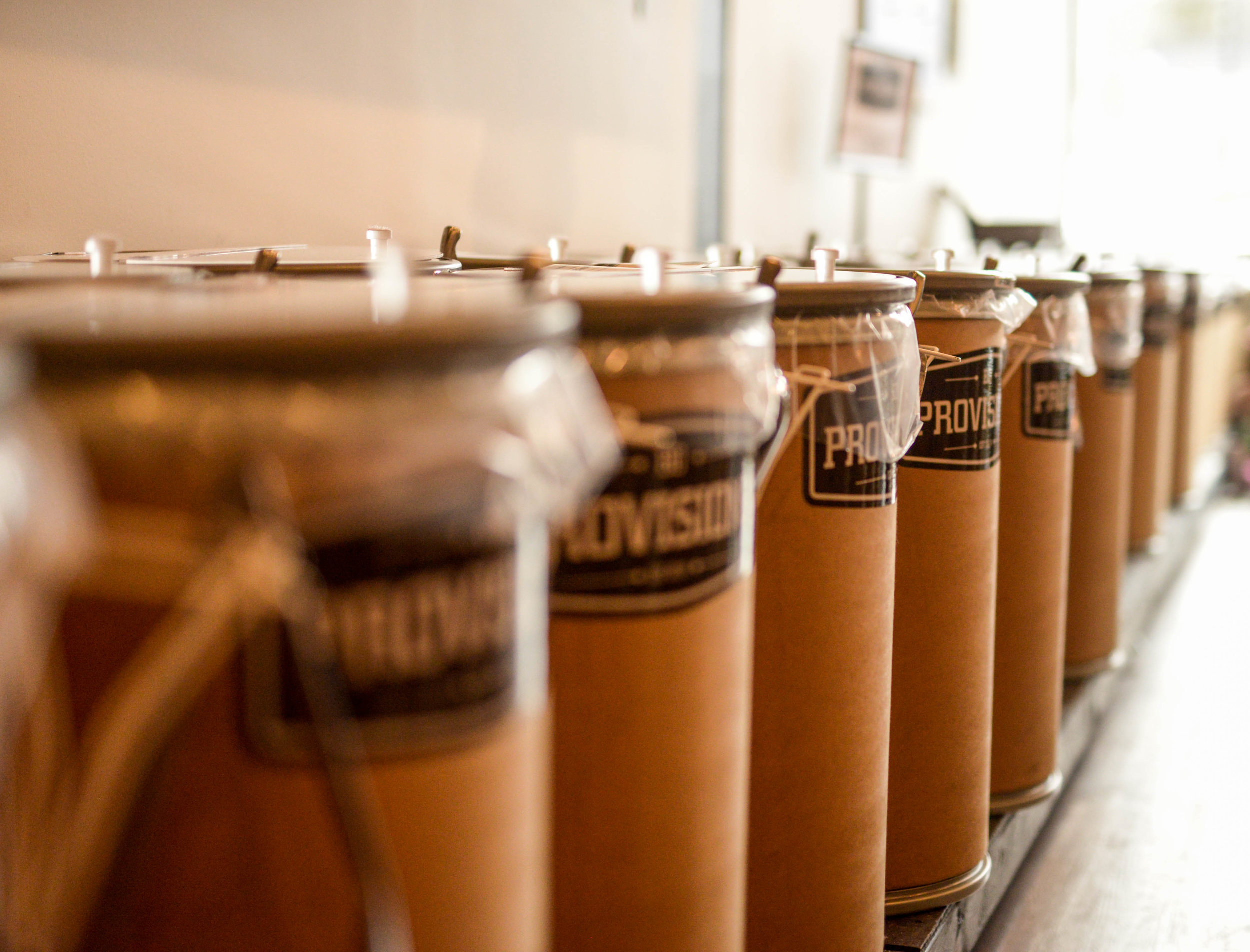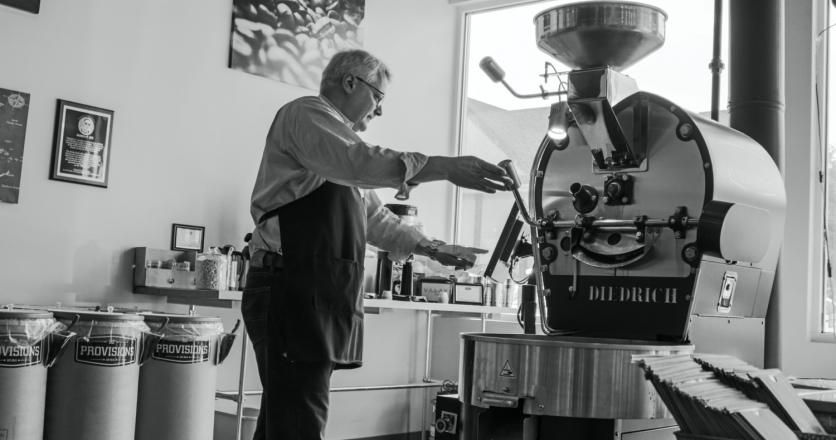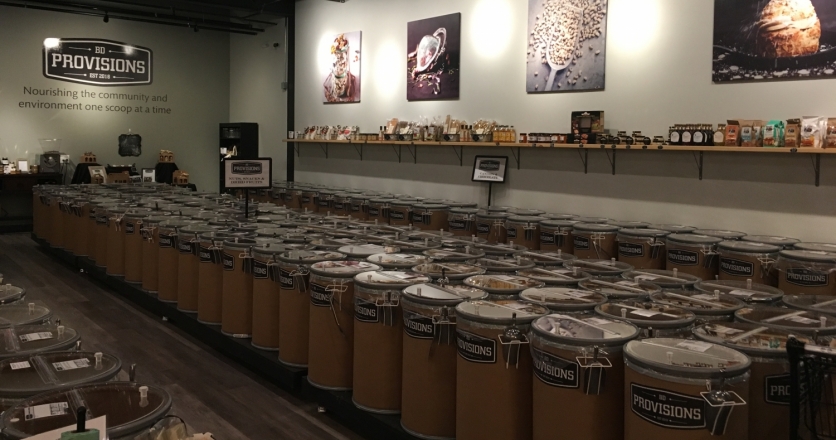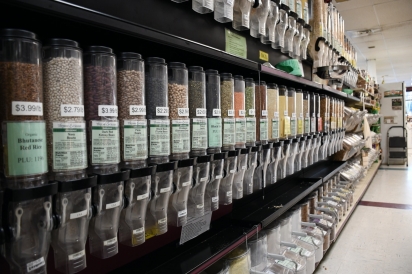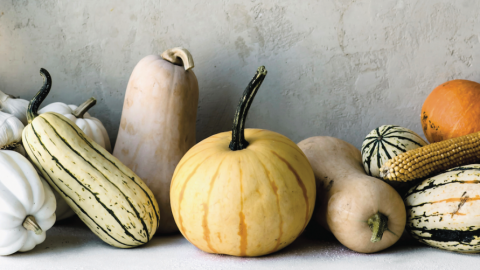Bulk Foods Make Shopping a Breeze
At a time when many consumers are concerned with what they eat, where it comes from, and how it’s packaged, bulk foods have become a growing trend, and Connecticut is home to some of those specialty markets where organic foods and zero waste are king. Edge of the Woods Market in New Haven and FoodWorks Natural Market (with locations in Guilford and Old Saybrook) both feature bulk sections in their stores. Edge of the Woods' bulk offerings include a generous selection of over 400 different herbs, many of them organically grown. New Morning Market & Vitality Center in Woodbury, opened in 1971, also features bulk bins that carry grains, beans, nuts, seeds, herbs, and spices.
BD Provisions
But for that traditional, “general store” feel, take a look at BD Provisions. Originally launched in Newtown in 2018, they opened a Fairfield shop in 2019 and are hoping to open a third location in New Milford later this year. Some of their best sellers are the in-house roasted coffee, oils and vinegars, and a sizeable candy department. They offer more than 300 bulk items, such as nuts, grains, spices, and loose-leaf teas that can be taken home in sustainable packaging – like their mason jar exchange program – to eliminate excess waste. But as co-owner John Boccuzzi says, if this is a “bulk food movement,” it took time to catch on.
“I equate buying bulk to solar. People kept saying, in the '80s and '90s, that the whole country was going to be solar. But it hasn’t been until the last five years or so that it’s really hit,” he says. “Bulk is the same way. Bulk was just a granola store for hardcore organics. It was so siloed. Bulk is now more mainstream.”
The concept for BD Provisions started with a visit to a bulk food store on a trip to Florida. Boccuzzi and his wife love to travel, so they thought it would be great to kick the bulk food concept up a notch and combine it with the style and presentation of a European boutique. Boccuzzi and his wife, Cynthia, partnered with good friends, Tony and Tara DiPippa, to launch the shop, starting the two couples on an entrepreneurship journey they’ve been enjoying ever since.
“Five years ago, this store wouldn’t have worked. But seven to eight years from now, we’ll have 100 stores. It means we’re making a difference in the community,” Boccuzzi says. “It’s the modern-day general store. I had one customer tell me, ‘This is where Trader Joe’s goes to shop!’ We’re a treasure hunt in food.”
Many of their customers agree. Kimberly Shapiro lives in Newtown and has been shopping at BD Provisions since they opened. She says the experience is far more relaxing than that in “big-box” stores. For instance, it’s much easier to maneuver the aisles. But for her, the best part is getting the exact amount of whatever is on your list. “I like how much I can choose of something I need,” she explains. “If I go to the grocery store, and I need tarragon, I have to buy the whole bottle. But at Provisions, if all I need is a teaspoon, I can get just that. You can get a little bit and pay accordingly.”
Like Shapiro, Luke Hoverman enjoys shopping at Provisions for a lot of the same reasons, but bulk items and less waste are key factors. “I hope we’re in a bulk movement. I feel that is something that I didn’t understand until we tried to reduce our waste,” he says. “We wanted to throw away less plastic. This is such a better system. I hope this is the start of something bigger.”
At BD Provisions, customers can purchase their mason jars and bring them back. The jars are then sanitized, and customers are provided with new ones to use and return on their next visit. No plastic. No unnecessary packaging. All reusable. The growing acknowledgment of this food trend became clear to Boccuzzi when Unilever, an international company representing many different food brands, contacted him to learn more about being packaging free. As he puts it, just because they’re a giant corporation doesn’t mean they can’t learn how to be more eco-conscious. “It’s a billion-dollar company that wants to pollute less,” he says. “I’m not going to turn that away.”
Thyme & Season and The Common Bond Market
Another cool stop on the bulk food trail, Thyme & Season in Hamden and their sister location, The Common Bond Market in Shelton, are owned and partially operated by State Representative Josh Elliott. His mother started Thyme & Season in 1997. He later became an equity partner in the original store, and she became an equity partner for Common Bond, which opened in 2014. While both stores offer bulk items, Elliott makes it clear that’s not what keeps the store humming.
“It seems like bulk is slowing down, but the no-waste movement is still prevalent,” he explains. “For a long time, bulk was trending up. But in both our locations, bulk has been slowing down the last couple of years.”
Elliott also notes that, even though a lot of natural food stores started out with bulk items as a main focus, that’s not how those stores are trending now. Thirty years ago, when his mom started the business, natural food stores were seen as the “nutty-crunchy, granola” type. Today, he sees his stores as more mainstream with a broader range of items to sell that appeals to a bigger audience.
And yet, bulk items give customers the kind of flexibility that big-brand stores do not. Jenny Stronk, Thyme & Season’s Director of Marketing and Events Programming, agrees with Shapiro’s point. You can pick and choose what you want based on how much you need. “It’s great if you’re making a recipe,” she says. “You don’t have to buy a whole bag of flour. You can just get a cup or two. I don’t think people realize that. It sets us apart from a big grocery store.”
In terms of food trends, bulk food may not be as ubiquitous as hummus or avocado toast, but it has persevered and gained popularity over the years, especially with those stores that have reimagined what it means to have a natural food experience. These stores listen to what their customers want, continually search for new local items, offer little to no waste, and provide a bulk shopping experience in sharp contrast to the “warehouse” aesthetic of big-box stores like Costco. If shopping at your local natural food store wasn’t yet on your list, this might be a good time to add it.


